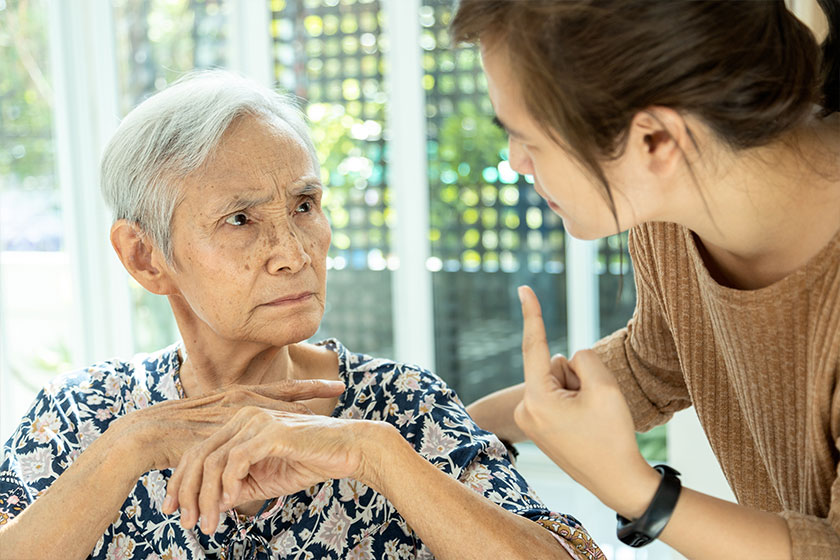There is very little scarier and more heartbreaking than the prospect of our loved ones forgetting who we are and the memories we share. Unfortunately, for those whose loved ones suffer from dementia, this fear is all too real. It can be difficult to witness cognitive decline as your loved one succumbs to the effects of dementia. In the later stages of dementia, they may begin the lose the ability to recognize those who are near and dear to them. This loss of memory can come in many forms, be it not being able to recall the nature of the relationship, such as mistaking the senior care centers’ caregiver as their daughter, or not being able to recall their son’s name. Either way, it is devastating and it may often feel like you will never get your loved one and the relationship you once shared back again. Here are some ways you can cope when faced with a loved one who is suffering from dementia and no longer recognizes you.
Understanding The Situation
If it seems like your loved one does not recognize you, do not panic yet. It is imperative to understand that there are various reasons why they may not be able to recognize you.
The most common reason is memory loss. One of the primary symptoms of dementia is memory loss. Quality memory care may slow down the process, but it is as dementia progresses, cognitive functions will deteriorate alongside memory. This will affect their ability to recall names, faces, events, and even people. The alteration this disease causes in the brain may explain why your loved one does not recognize you. Delirium caused by diseases or certain medications may also cause them to lose their ability to recognize you suddenly.
Other common symptom of dementia is paranoia and delusion. It is easy to mistake a fear response from your loved one as them not recognizing you, but it may be a result of them developing paranoia or delusions instead. Suffering from paranoia or delusions may cause your loved one to fear you, thus inciting a fear response from them in association with you.
Lastly, your loved one may not recognize you simply because they can no longer see you properly. This may seem rather silly, but it is very common for older adults to lose their vision. Their deteriorated vision may very well be the reason why they cannot recognize you!
How To Cope
Of course, the possibility that your loved one has truly lost their memory of you is always there so here are some tips on how you can cope when faced with such a heart-wrenching reality:
- React gently: Finding out that your loved one no longer remembers you is a gut punch that often invokes strong and overwhelming emotions. However, it is important that you do not overreact. The last thing you want is to increase their anxiety by trying to get them to remember you by insisting that you are their relative. Instead, de-escalate the situation and steer it in a more casual direction such as asking them how their day was.
- Acknowledge the loss: It is okay to grieve. You should acknowledge that your loved one’s health is declining and that your relationship may never be the same again.
- Look for the silver lining: Remind yourself that your loved one does not have a choice in what they remember and forget. Try not to harbor any resentment and instead try to look on the bright side, even when things may seem bleak. Celebrate small victories like when your loved one remembers a name or a cherished memory instead of counting your losses.
- Attempt validation therapy: Instead of trying to correct them when they misrecognize you as someone else, give them the opportunity to share what they remember and provide continual support and encouragement.
- Pull out the photo album: They say a picture is worth a thousand words. It is not uncommon for patients to recall certain memories after seeing a picture or video. Even if that does not occur, visual aids can be helpful in boosting the memory of the patient.







